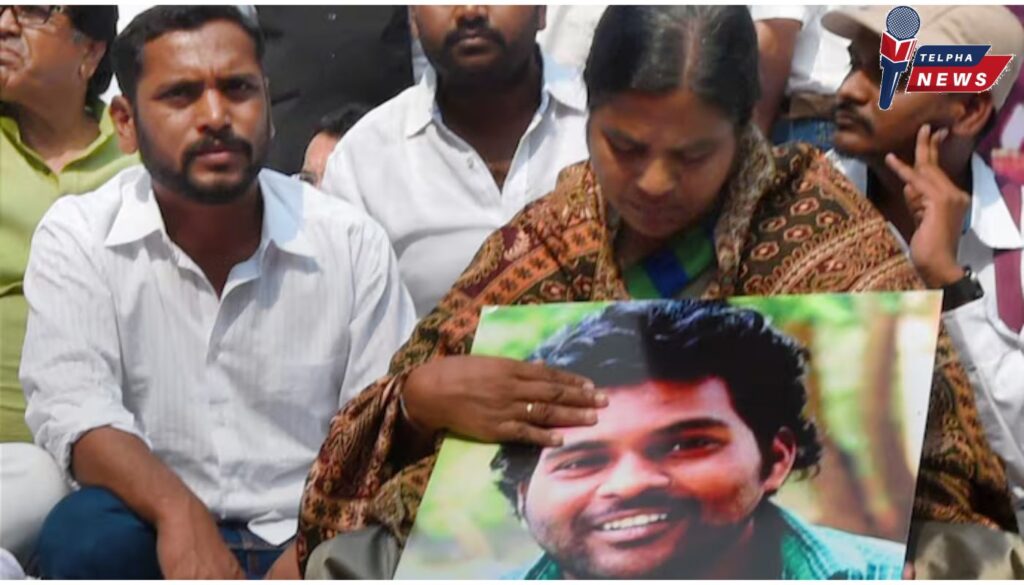
In January 2016, the tragic death of Rohith Vemula, a promising PhD scholar at the University of Hyderabad, sent shockwaves across the nation. His suicide sparked debates on caste discrimination, institutional bias, and the mental health struggles faced by students, particularly those from marginalized communities. Despite the passage of time, the quest for justice and truth continues, with recent developments reigniting the call for accountability.
Rohith Vemula’s mother, Radhika Vemula, recently rejected the Telangana Police’s closure report on her son’s case, vehemently asserting its falsehood. The report, which controversially claimed that Rohith was not a Dalit, has been met with skepticism and outrage from various quarters. Radhika Vemula’s impassioned plea for justice underscores the enduring pain of a mother robbed of her son and the relentless pursuit of truth in the face of adversity.
The closure report’s assertions have sparked widespread condemnation, with accusations of falsified evidence and biased investigations. Radhika Vemula’s incredulity at the police’s questioning of Rohith’s caste identity resonates deeply, highlighting the insidious nature of caste-based discrimination that continues to plague Indian society. Her poignant reminder of Rohith’s academic prowess and achievements challenges the narrative of the closure report, which sought to diminish his legacy and distort the truth.
Furthermore, the involvement of political figures and student organizations adds another layer of complexity to the case. Allegations of undue influence and vested interests cast a shadow over the integrity of the investigation, raising questions about the impartiality of the authorities involved. The assertion by the Ambedkar Students’ Association (ASA) that the closure report prioritized discrediting Rohith’s Dalit identity underscores the systemic biases entrenched within the judicial system.
The implications of Rohith Vemula’s tragic demise extend far beyond the confines of his university campus. It serves as a stark reminder of the pervasive injustices faced by marginalized communities and the urgent need for systemic reform. The demand for accountability and transparency resonates not only with Rohith’s family but with countless individuals who have been marginalized and silenced by institutional oppression.
As advocates for justice and equality, it is imperative that we lend our voices to the ongoing struggle for truth and accountability. The closure report may represent a temporary setback, but it cannot extinguish the flames of justice that burn bright in the hearts of those who refuse to be silenced. In solidarity with Rohith Vemula’s memory and the countless others who have suffered similar injustices, let us stand united in our pursuit of a more just and equitable society.
In conclusion, Rohith Vemula’s legacy serves as a rallying cry for change, inspiring us to confront the entrenched biases and injustices that continue to pervade our society. His memory will forever endure as a symbol of resilience and defiance in the face of adversity. As we continue to seek answers and accountability, let us honor his memory by tirelessly advocating for a future where every individual is treated with dignity, respect, and equality.